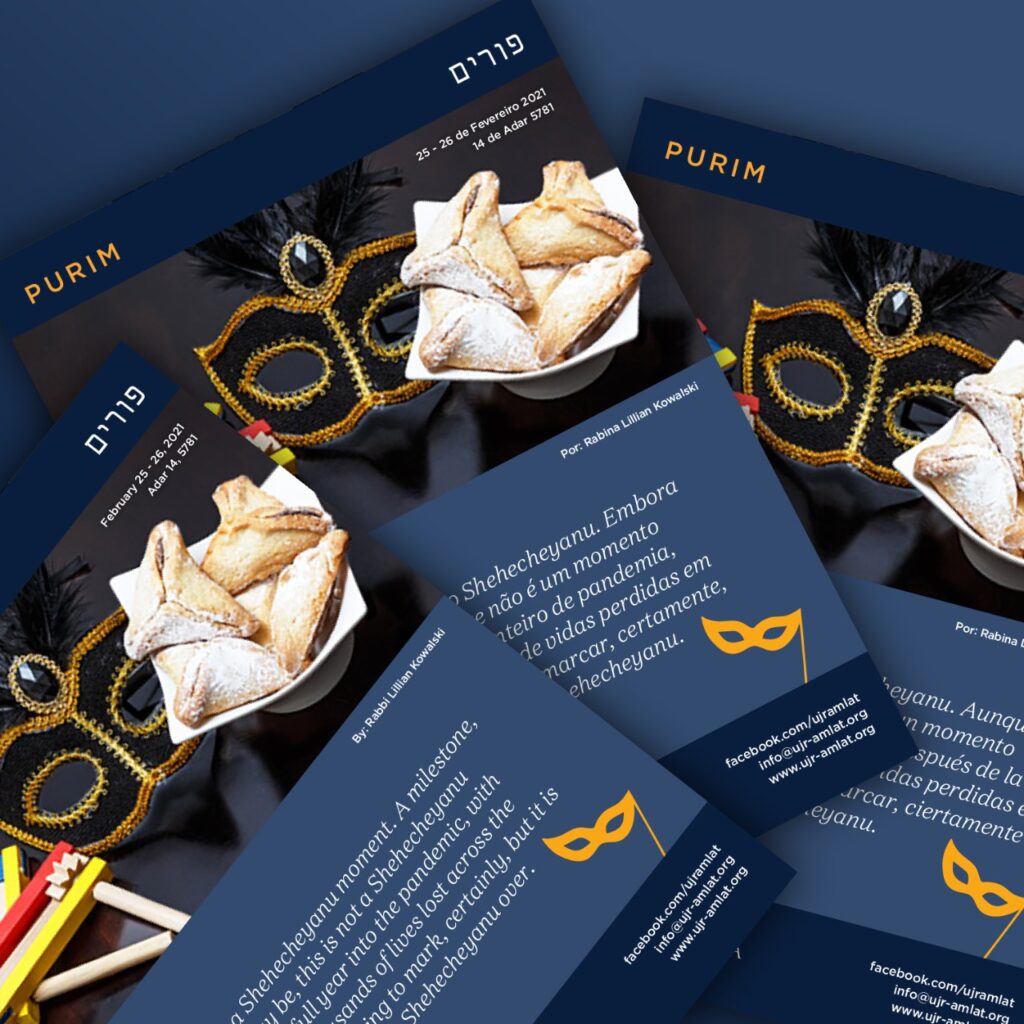This is not a Shehecheyanu moment. A milestone, though it may be, this is not a Shehecheyanu moment. One full year into the pandemic, with hundreds of thousands of lives lost across the globe—it is something to mark, certainly, but it is not something to say Shehecheyanu over.
I am reminded of this for two reasons: first, it was just over a year ago that in my capacity as director of education, I canceled Hebrew school for the very first time due to inclement weather. The power to grant snow days or cancel school is looked upon by children as the greatest of all authority. However, when I touted my accomplishment on social media, a dear friend admonished me that as an educator, I should not celebrate the loss of a learning opportunity. Shehecheyanu should be reserved for special, joyous occasions, they reminded me.
Furthermore, for many of us, our Purim celebrations last year were the last time we were able to gather together in community with our friends and loved ones before the pandemic set in in earnest. Our tradition reminds us that when Adar enters our joy increases. This year, however, more so than any other time in my life, I feel a sense of resentment towards the forced exaltation spurred by a mere shift in the calendar. When the pandemic hit last year, and it hit hard, excitement turned to despair, joy became tragedy; it was the very essence of the topsy-turvy notion that we typically associate with Purim, but for all the wrong reasons.
So how do we find that joy and even more so, how do we increase it in these troubling and difficult times? It turns out, again this year, I also had to cancel Hebrew school for another snow day. Rather than merely bemoan the loss of a learning opportunity, I tried to channel my own school-kid days instead: I bundled myself up in my coat, boots, scarf, hat, and gloves, and walked down to the nearby park, eyeing my footprints behind me, balling up the snow and throwing it up in the air to watch it fall down upon me. For a brief moment in time, I felt light, like the snow itself.
The realization dawned on me that I must focus my Purim observance on one line of text in particular: “And who knows, perhaps you have attained [this] position for just such a crisis.” (Esther 4:14, JPS translation). All of our lives have been inextricably changed, altered, and turned upside down because of this pandemic. My outlook as an educator and that of my rabbinate have been forever altered by my first experiences in the professional world overshadowed by death, isolation, and fear.
I also know that this is the time when my students and congregants need me the most. Like the silent unseen presence of God that permeates through the Book of Esther due to its glaring omission, I cannot help but wonder what purpose, what lessons, will we glean from these experiences moving forward. What joy did we bring and how did we increase it? How did we right ourselves in the midst of our topsy-turvy world? What moments did we find where we could earnestly say Shehecheyanu, with full recognition and awareness of its beauty and impact? Time and the calendar perpetually march on – when we arrive at Purim next year, what questions will be asked of us and this time right now? How we choose to answer those questions is defined by our actions right now—which is the reason we have all attained this position, for just such a crisis.
—
RABBI LILIAN KOWALSKI
Currently serves as one of the Rabbis and Director of Education at Temple Israel in Tulsa, Oklahoma
Folheto Purim Português Folleto Purim Español Flyer Purim English





